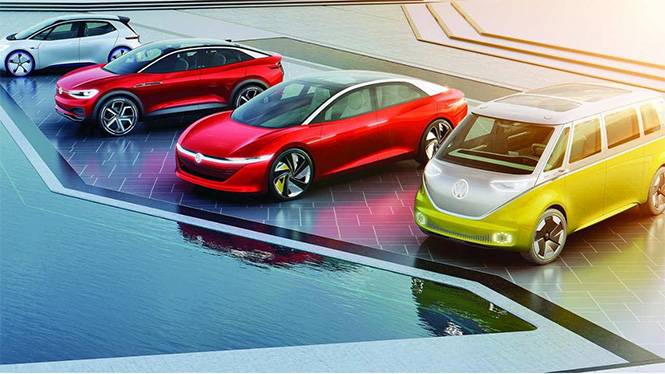



 (4 ratings)
(4 ratings)
A major roadblock among fast-track adoption of electric vehicles has been the price tag. Scaling electric cars and driving for a mass adoption remains a distant dream for now. However, Volkswagen’s new scalable electric car platform, the MEB (Modular Electric Matrix), could be the long-awaited solution to scalability. The MEB platform promises relief from a host of problems that currently paralyze the electric car industry. Currently, manufacturers modify existing models to fit an electric powertrain.
VW’s all-new architecture and ‘Electric for All’ campaign aims at genuine mass production of electric vehicles. VW hopes to make electric cars affordable for one and all. VW will offer Designed-from-the-ground-up electric car. The first production phase will see 1,50,000 electric cars comprising of minivan, hatchback, crossover, and sedan.
Thomas Ulrich, member of the board and the one in charge of electric cars at VW. “Our modular transverse toolkit (MQB, used for its regular cars) has already proved that Volkswagen is one of the most successful platform developers in the auto industry. And now we are transferring this know-how and knowledge to the electric age.”

Read Also:- Hottest New Car Launches in January 2019
What Does The MEB Architecture bring to the Electric Car Market?
VW’s commitment to the project is cemented by the fact that it has already converted four of its Erstwhile manufacturing and research centres into dedicated centres of electric car research and production. It further plans to expand production centres across the globe as well as transform its current facilities producing car components, batteries into dedicated centres for making an electric car and electric car components only. VW will make capital- investment to the tune of 1.3 billion Euro for Europe alone. Overall the investment for the visionary project will cost more than 6 billion Euro. VW hopes to return profits following the first production cycle.